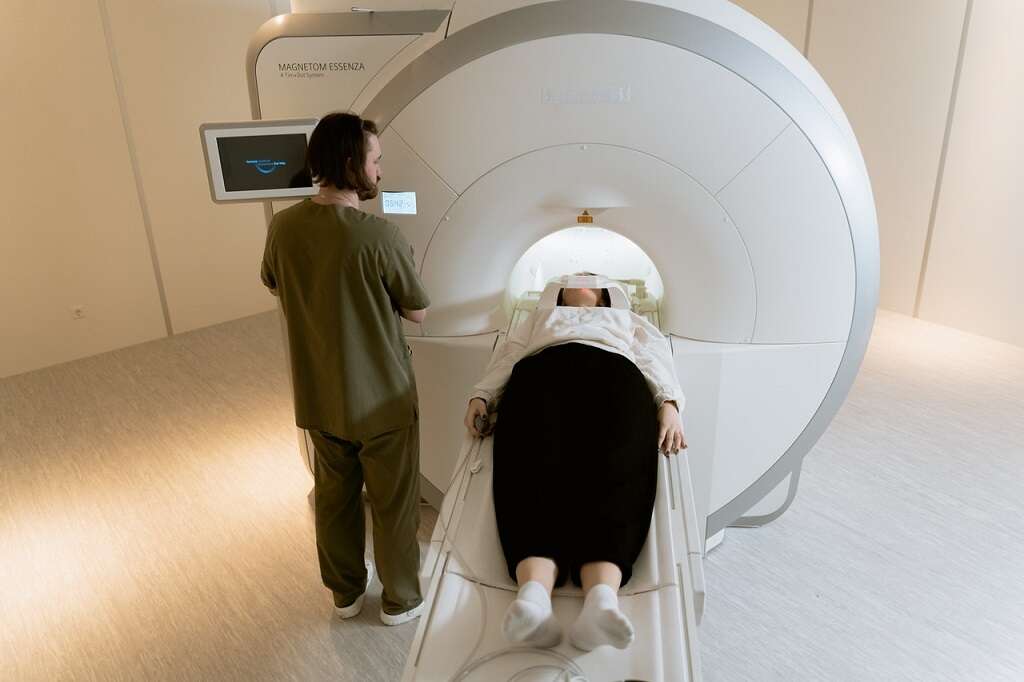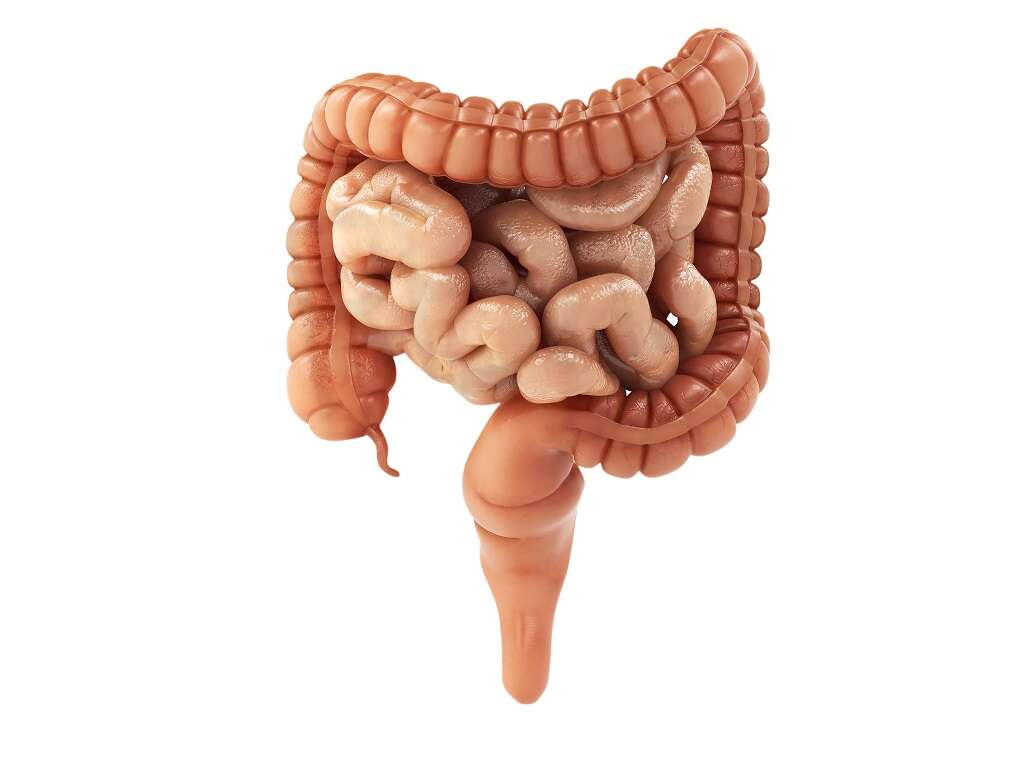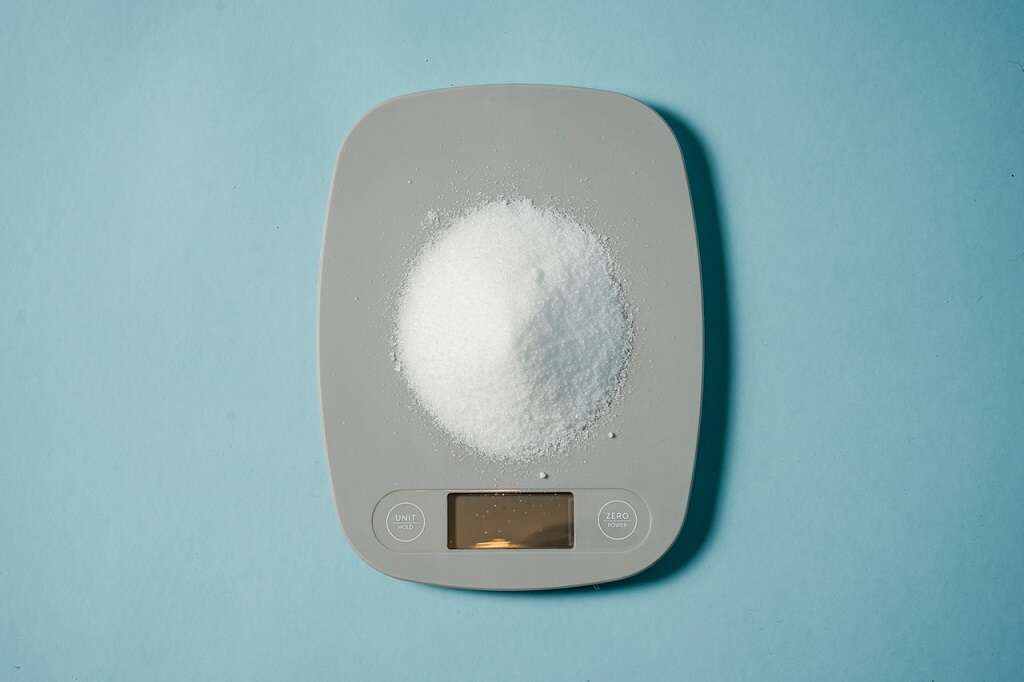Distendend Abdomen Causes, Treatments and More
 Article Sources
Article Sources
- 1. ’Abdomen – swollen.’ Medline Plus. medlineplus.gov/ency/article/003122.htm
- 2. ’Understanding and managing chronic abdominal bloating and distension.’ Mayo Clinic. mayoclinic.org/medical-professionals/digestive-diseases/news/understanding-and-managing-chronic-abdominal-bloating-and-distension/mac-20511032
- 3. Sullivan S. ‘Functional Abdominal Bloating with Distention.’ National Institutes of Health ncbi.nlm.nih.gov/pmc/articles/PMC3388350/
- 4. Halmos E; Power V; Shepherd S; Gibson P; Muir J. ‘A diet low in FODMAPS reduces symptoms of irritable bowel syndrome.’ National Institutes of Health 2013 pubmed.ncbi.nlm.nih.gov/24076059
About 40 percent of the general population reports having a bloated and distended abdomen. People with functional gastrointestinal disorders, such as irritable bowel syndrome or IBS, experience it more. Abdominal distension can occur when substances, such as gas or fluid, accumulate in the abdomen. Most people agree it's very uncomfortabe.
Bloating and distended are not interchangeable terms. Bloating refers to the feeling of having too much gas or food, whereas a distended abdomen is a visual and measurable change in size. People who are distended describe the feeling as bloated.1’Abdomen – swollen.’ Medline Plus. medlineplus.gov/ency/article/003122.htm It can be a symptom of an underlying disease or dysfunction in the body.

Causes of a Distended Abdomen
Distended abdomen causes range from temporary gas to cysts or tumors. Eating a large meal, eating too much fiber or swallowing air are associated with distension. Lactose or gluten intolerance can also cause this condition in susceptible people.
Medical reasons for distension include IBS, intestinal blockage, uterine fibroids, ovarian cysts or a mass in an abdominal organ. Ascites, or fluid buildup, can be the result of any of the medical causes. In some cases, a distended abdomen can be caused by a lack of motility in the stomach or intestines.1’Abdomen – swollen.’ Medline Plus. medlineplus.gov/ency/article/003122.htm,2’Understanding and managing chronic abdominal bloating and distension.’ Mayo Clinic. mayoclinic.org/medical-professionals/digestive-diseases/news/understanding-and-managing-chronic-abdominal-bloating-and-distension/mac-20511032

Signs and Symptoms of a Distended Abdomen
In addition to increased abdominal size and a feeling of being bloated, other symptoms and signs may arise with a distended abdomen, including constipation or diarrhea, unusual fatigue, or passing gas or burping more than usual.1’Abdomen – swollen.’ Medline Plus. medlineplus.gov/ency/article/003122.htm
Weight gain and irritability may be present as well as vomiting under certain circumstances. Gynecological symptoms may include a lack of menstruation or a painful period with increased bleeding. Occasionally the abdomen is tender, and there may be fever.1’Abdomen – swollen.’ Medline Plus. medlineplus.gov/ency/article/003122.htm,3Sullivan S. ‘Functional Abdominal Bloating with Distention.’ National Institutes of Health ncbi.nlm.nih.gov/pmc/articles/PMC3388350/

When a Distended Abdomen Requires a Doctor Visit
Most distension goes away on its own, particularly if it's caused by overeating and certain food sensitivities. It can generally be self-treated at home, but certain symptoms require a closer look.
It's important to see a doctor or other health care provider if the swelling gets worse or if the abdomen is tender and a high fever is present. Severe diarrhea, bloody stools, or the inability to eat or drink for at least six to eight hours should also prompt a doctor visit.1’Abdomen – swollen.’ Medline Plus. medlineplus.gov/ency/article/003122.htm

Diagnosis of the Cause of Abdominal Distension
A complete family and medical history and physical exam may help identify the cause of bloating and distension, particularly celiac disease, irritable bowel syndrome and motility issues. The doctor may push gently on the stomach to determine if there's swelling or pain in particular areas, such as the liver or pancreas.
Laboratory examination of stool and urine samples may rule out internal bleeding, parasites and cancer. Carefully planned questions about the swelling may help pinpoint the cause as well.1’Abdomen – swollen.’ Medline Plus. medlineplus.gov/ency/article/003122.htm

Diagnostic Tests for Abdominal Distension
Blood tests may indicate an underlying problem, and X-rays can show a tumor or structural damage to a part of the gastrointestinal system.
Other commonly used tests include abdominal ultrasound and CT scans, sigmoidoscopy or colonoscopy, or EGD, in which a tube is passed through the esophagus, stomach and beginning of the small intestine to locate abnormalities. A gastric motility test may be done, and if there appears to be abdominal fluid, a physician may use a needle to draw it out for testing.1’Abdomen – swollen.’ Medline Plus. medlineplus.gov/ency/article/003122.htm

Distended Abdomen Caused by Food Intolerances
Several types of food can cause intolerance, including certain vegetables, fruits and grains and foods containing gluten or dairy. For example, peas and beans can cause gas. Gluten appears in wheat, barley and some other grains.
A person may just have a sensitivity to gluten, or they may have celiac disease where gluten consumption causes severe pain and gastrointestinal disturbances. Eating dairy foods may cause symptoms similar to those associated with gluten sensitivity and may vary depending on the particular dairy food consumed.

Self-Care for Distended Abdomen and Bloating
Mild abdominal distension may be alleviated by eating smaller meals, avoiding carbonated beverages and eating more slowly. It may also help to avoid drinking through a straw, chewing gum, sucking on hard candy and sipping the surface of hot liquids.
Eating several small meals throughout the day can help reduce a distended stomach. Exercise, increased water consumption and adding more fiber to the diet may reduce distension as well. Using a heating pad on the abdomen may help ease discomfort.1’Abdomen – swollen.’ Medline Plus. medlineplus.gov/ency/article/003122.htm

Management of IBS and Other Causes of a Distended Abdomen
There isn't a particular course of action when abdominal distension and bloating are caused by a disease such as IBS, but several remedies may help. It's important to find the underlying cause and to rule out celiac disease and Crohn's disease, which have their own set of management strategies.
Exclusion diets help identify and treat food intolerances. Wheat, rye and dairy are common culprits that may be fairly easy to identify using exclusion methods.2’Understanding and managing chronic abdominal bloating and distension.’ Mayo Clinic. mayoclinic.org/medical-professionals/digestive-diseases/news/understanding-and-managing-chronic-abdominal-bloating-and-distension/mac-20511032

The FODMAPS Diet
Some people are sensitive to various fermentable sugars. Of particular note are lactose, fructose and sorbitol. When fermented in the large bowel, these sugars cause increased gas and distension.
A diet developed especially for this type of distension is called FODMAPS, an acronym for Fermentable Oligosaccharides, Disaccharides, Monosaccharides And Polyols. These carbohydrates are poorly absorbed and tend to absorb water and undergo fermentation, causing abdominal distress. The FODMAPS diet excludes this type of carbohydrate and has been particularly helpful in IBS.4Halmos E; Power V; Shepherd S; Gibson P; Muir J. ‘A diet low in FODMAPS reduces symptoms of irritable bowel syndrome.’ National Institutes of Health 2013 pubmed.ncbi.nlm.nih.gov/24076059

Summary
Abdominal distension has many potential causes, including food intolerances, IBS, celiac disease and Crohn's disease, an inflammatory small bowel disease. Lifestyle factors, such as eating habits, weight gain and lack of exercise, may also contribute to the condition.
Management includes eating small, frequent meals, getting regular exercise and using exclusion diets to identify and avoid poorly tolerated foods. Tests can determine if the distended abdomen has a medical cause that needs treatment. Severe, persistent distension with other symptoms may require a visit to a physician.











